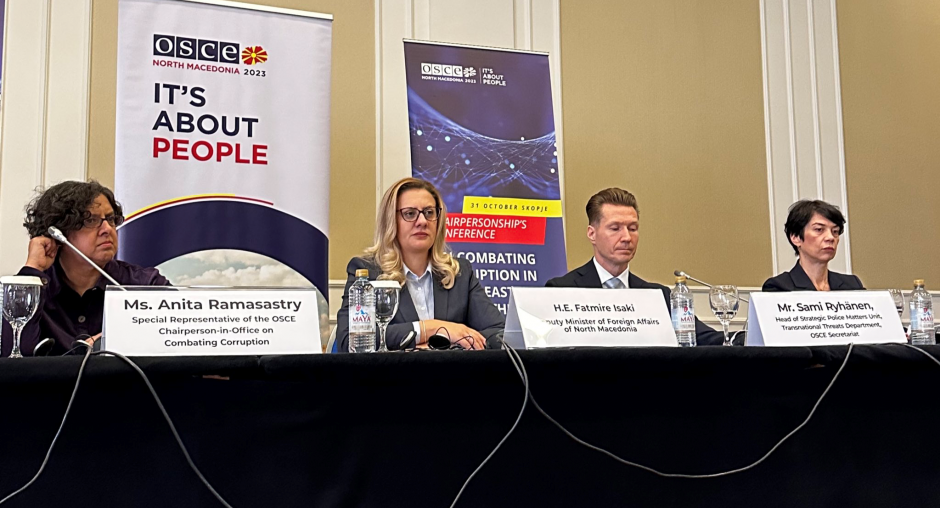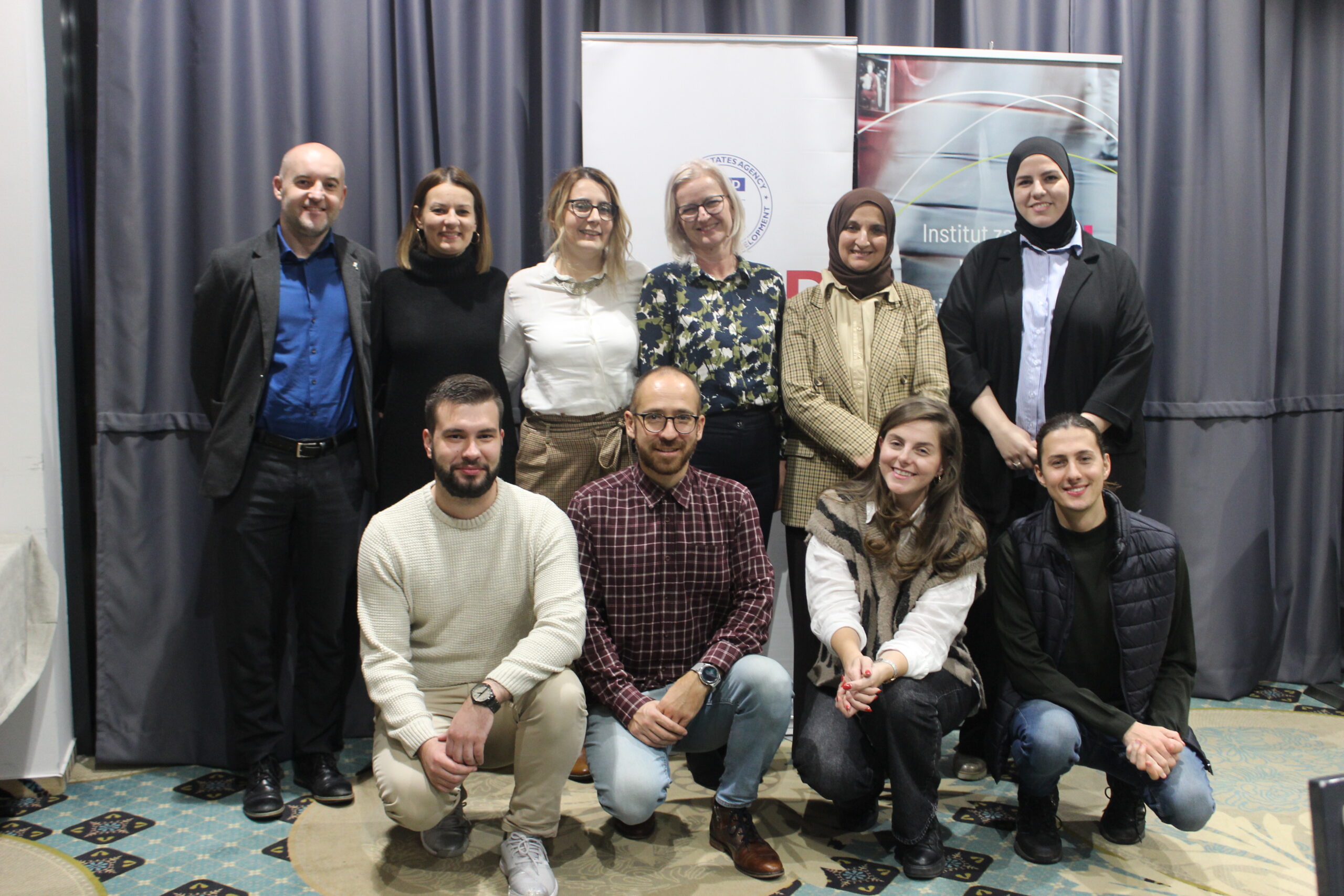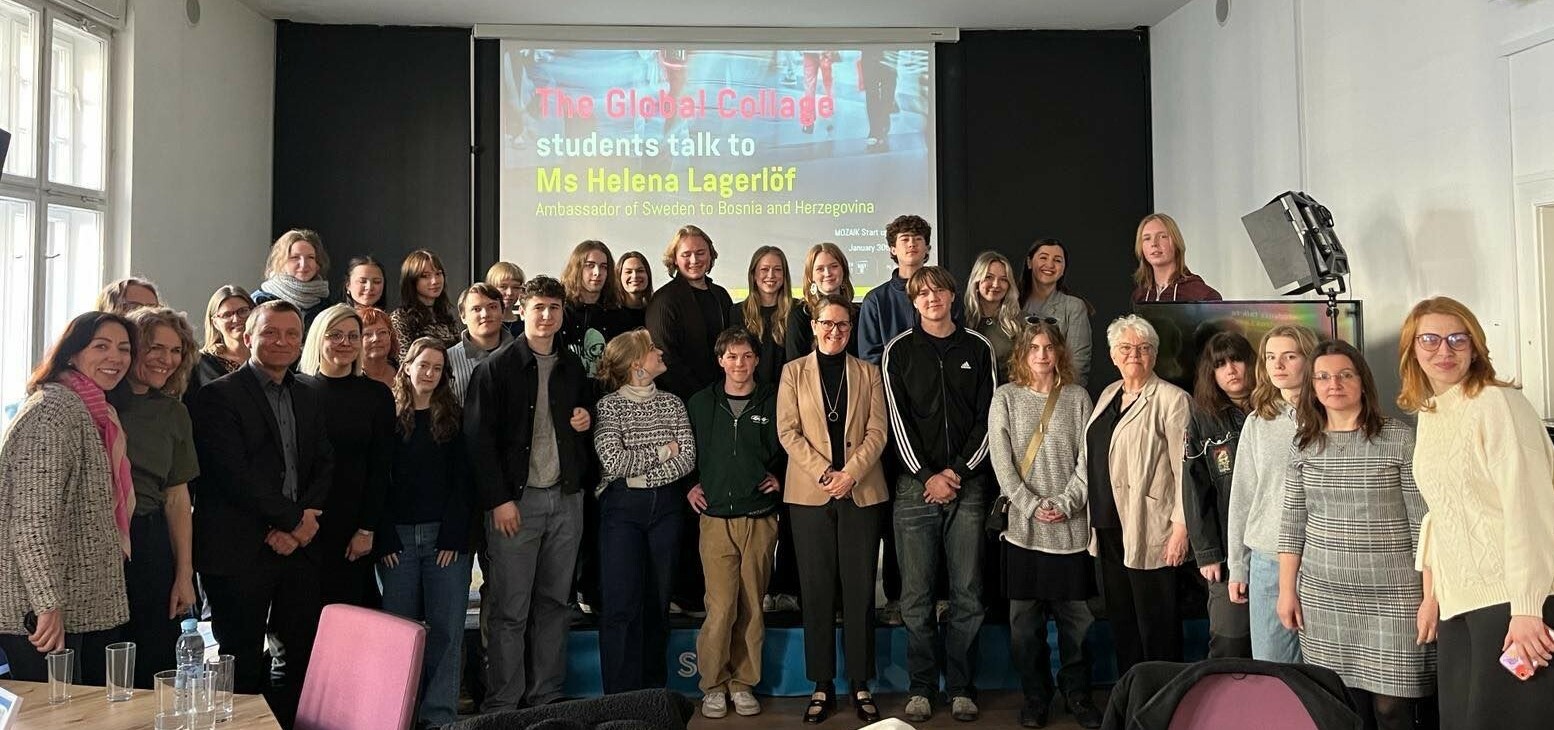The Institute for Youth Development KULT participated in key activities organized within an OSCE project dedicated to the social reuse of confiscated assets. This article summarizes some of the most important events and lessons learned from these activities and highlights the challenges faced by NGOs in general and the Institute in our work in this area.
Between February and November 2023, the Institute participated in national and regional workshops on the social reuse of seized assets and attended a regional conference on combating corruption, money laundering, and asset recovery efforts. During these events, the Institute shared its experiences in fighting corruption and building organizational capacities in Bosnia and Herzegovina. More information about the conference is available HERE. We also heard about the challenges faced by organizations and institutions in the Western Balkans. The conference in Skopje and workshop in Vienna also included representatives from North Macedonia, Albania, Montenegro, and Serbia, alongside BiH. These stakeholders are dedicated to preventing perpetrators of criminal acts from benefiting financially and to eliminating corruption for good.
Lack of capacity
In addition to the lack of capacity of non-governmental organizations, which the Institute targeted through its capacity assessment and capacity building programs, becoming the only stakeholder in BiH to take concrete steps towards systemic and long-term problem solving, there is an evident lack of political will to allocate sufficient funds for the work of institutions and agencies in BiH so they can more easily identify priorities for the reuse of assets seized from perpetrators of criminal acts. However, the work does not stop there – the competent institutions must be ready and continuously:
- assess the capacities of potential partners from the non-governmental sector who will be beneficiaries of confiscated property,
- prepare and implement the necessary methodologies for selecting organizations and projects to be funded and supported through the use of confiscated assets,
- monitor and evaluate funded projects to ensure that non-governmental organizations (or public institutions) use the allocated funds effectively and in compliance with laws and good management standards.
To improve transparency and performance, competent institutions must acknowledge the potential of multi-sectoral cooperation with non-governmental and private sectors, and local governments. Social reuse involves various aspects of society, including individuals, communities, institutions, and the broader ecosystem. Therefore, it is essential to involve different stakeholders at all stages of the reuse of illegally acquired assets.
“How much longer must we persist to earn trust as reliable and stable partners in combating crime and fostering local community development?” This question was asked frequently during meetings in response to doubts about the capacity of local civil society organizations to actively engage in this process. If local organizations do not establish multi-sector partnerships, international organizations may step in as mediators between the government and the NGO sector, bringing success stories from other countries (e.g., Italy). That would not be in the interest of either the government or the non-governmental sector.
Promoting social reuse
The social reuse of seized assets needs to be promoted more intensively, particularly in communities most affected by criminal activities. This is achieved by depriving criminals and criminal groups of financial and other benefits and investing in communities to build values important to young people in BiH, such as social justice, inclusiveness and diversity, education, and free access to information.
It is crucial to ensure that the non-governmental sector and the wider community can access information about the potential to use seized assets. When local communities and individuals hesitate to act against powerful local figures and criminals due to fear of repercussions, government representatives must adopt a transparent and long-term communication strategy to address this. This approach allows for effective communication of all the benefits the community will receive and guarantees of safety against further illegal activities by individuals and criminal groups whose assets have been seized and returned to the community.
The Institute will continue to play an important role in these initiatives and the broader fight against corruption in BiH and beyond. Increased transparency, cooperation, and effective use of seized assets can significantly reduce corruption and strengthen social resources.













Leave a comment